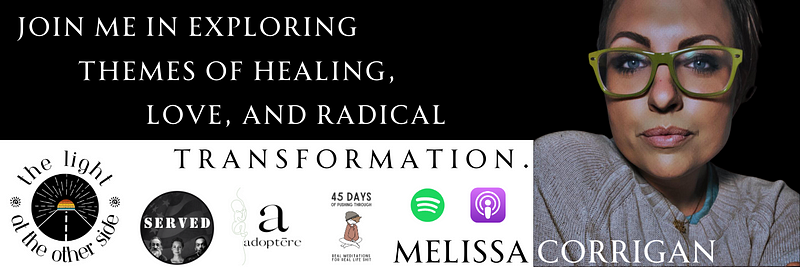Understanding Chronic Pain: The Struggle for Recognition and Relief
Written on
Almost every day feels like a gamble.
Upon waking, I pause to assess my condition before making any movements. Gradually, I stretch my legs; if all feels well, I sit up and swing my legs over the side of the bed. Only then can I truly gauge how my day will unfold.
Some days, I experience only a slight discomfort. Other times, I am immediately met with intense pain in my lower back, sending my mood spiraling downwards.
The unpredictability of it all is exhausting.
Causes of My Pain
At the age of 14, I received a diagnosis of scoliosis following an injury while lifting drums for my marching band. Prior to this incident, I had experienced some minor back pain, which, in hindsight, should have been a warning sign. A visit to the doctor revealed torn muscles and a curvature in my spine, which was deemed “mild.” I was led to believe it was a minor issue, and after recovering from the injury, I returned to my regular activities, experiencing occasional discomfort that seemed normal.
After moving out, I took on physically demanding jobs such as bartending and waiting tables, often on hard surfaces while wearing Converse shoes. Without a car, I walked everywhere, including a mile and a half uphill to my primary job. Looking back, I marvel at how I managed that trek effortlessly in my youth.
Following shifts, I would visit my favorite coffee shop for a treat before heading to my next job. Most nights, I went to bed with a slight ache in my back, but nothing that hindered my activities.
Joining the military brought its own challenges. Boot camp was tough, but I remained cautious to avoid aggravating my back. However, while stationed on an aircraft carrier in 2005, we encountered a severe storm. As I was carrying a PC tower up a ladder, the ship rolled violently, and I fell, landing directly on my back.
Although the equipment was unharmed, my back was not as fortunate. After a visit to the ship’s medical facilities, I was prescribed Motrin and advised to rest. However, the conditions on a ship made it nearly impossible to find comfort. The stacked beds, with thin foam mattresses, were torturous for someone with back pain. After a week of struggling, I found more relief sitting in my office chair than lying down.
Due to the lack of proper support during recovery, my back did not heal correctly, and as time passed, the curve in my spine worsened. What had once been manageable discomfort became a constant presence.
Experiences in My Forties
A car accident at 41 resulted in a broken rib, solidifying my back pain as a daily struggle. Each day felt like a battle against the persistent ache that forced me to take frequent breaks.
I began exploring the concept of somatic pain, wondering if my body was storing trauma from my past. Despite the physical pain, I often questioned whether my experiences were valid.
At 42, I found myself propped up with pillows, often writing from bed, relying on a heating pad and medication for relief. My hobbies fell by the wayside, as tasks around the house piled up, contributing to my feelings of frustration and despair.
In a moment of vulnerability, I confided in my new doctor about my pain. However, her demeanor shifted as soon as I mentioned it. I quickly clarified that I wasn’t seeking narcotics but perhaps a targeted injection, similar to one I had received for carpal tunnel syndrome.
The response I received was disheartening; despite my documented disability and service-related injury, she insisted on further tests to validate my claims. The results confirmed double scoliosis, alongside other issues, providing tangible evidence of my condition.
What I yearn for is simple: to reclaim my life. I don't want to rely on medication; I just want to garden, repair, walk, hike, and engage in the activities I love without the burden of pain. Yet, I find myself treated with skepticism, as if I were seeking a fix rather than genuine help.
The Stigma of Pain
The opioid crisis has cast a long shadow, leading to a widespread hesitance in treating pain. I understand the seriousness of this issue, but amid the chaos, there are individuals in real pain, denied the relief they deserve.
Four years ago, I faced debilitating stomach pain that led to an emergency room visit, where I felt seen and respected. Yet, my later visits were met with a stark contrast in treatment; the change in my appearance led to assumptions and dismissive behavior from medical staff.
Despite my clear medical history, I was treated poorly, enduring humiliation and skepticism at a time when I needed care the most.
We must address the broader crisis of untreated pain affecting countless individuals. When will our experiences and needs be taken seriously?
Today, I had a manageable day with only mild discomfort. I’m slowly working on my garden, taking my time to nurture it as I adapt to a new pace. I refuse to let my pain dictate my life.
Living with chronic pain is like cohabiting with an unwelcome guest; their presence is unpredictable, and their impact is profound.
We need to listen to each other. When we express pain, we need to be believed.

My name is Melissa Corrigan, a freelance writer and thinker residing in coastal Virginia. As a mother, wife, and veteran, I value sharing my thoughts and engaging in meaningful conversations.
If you appreciate my writing, consider exploring my podcast, where I delve into topics related to parenting, political ideologies, and more. Additionally, check out my publications focused on amplifying the voices of adoptees and veterans.
If you enjoy my work, a coffee donation would be greatly appreciated, or consider becoming a member for exclusive content and insights!